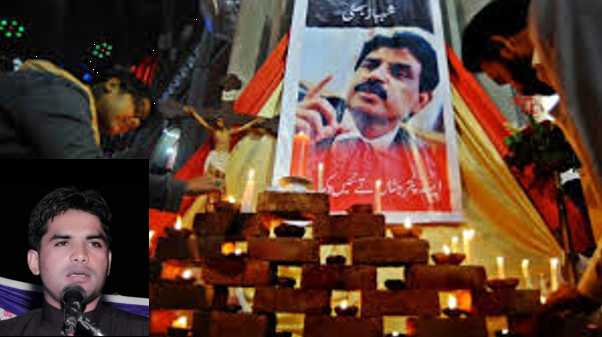By: Waqas Qamar Bhatti
Shahbaz Bhatti, a prominent figure in Pakistan’s political landscape, remains a symbol of courage and commitment to minority rights. Born in September 1968 in Faisalabad to a Christian family, Bhatti experienced discrimination and injustice from an early age. These experiences shaped his worldview and fueled his determination to fight for the rights of marginalized communities. His mother played a significant role in shaping his moral compass, instilling in him the values of justice, equality, and service to humanity.
A Life of Service:
After completing his education, Bhatti embarked on his political career by joining the Pakistan People’s Party (PPP). Following the 2008 general elections, he made history as the first Christian to serve as the Federal Minister for Minority Affairs. His tenure as minister was marked by his relentless efforts to secure equal rights for minorities and promote religious harmony. Bhatti served as a vital bridge between different faith communities, tirelessly working to foster understanding and mutual respect.
Among his significant contributions was the introduction of policies that improved the status of minorities. He championed the establishment of a job quota for minorities and played a crucial role in ensuring development funds for minority communities. One of his most notable efforts was advocating for reforms to Pakistan’s controversial blasphemy laws, which were frequently used to target religious minorities. Despite opposition, Bhatti remained steadfast in his commitment to preventing the misuse of these laws while maintaining his respect for religious sensitivities.
Martyrdom and Impact:
In March 2011, Shahbaz Bhatti was assassinated in Islamabad when gunmen opened fire on his car. His assassination was a devastating blow to the struggle for minority rights in Pakistan. Despite facing constant threats to his life, Bhatti remained unshaken in his mission to protect the oppressed. His martyrdom not only highlighted the dangers faced by those who fight for minority rights but also invigorated the movement, inspiring others to continue the struggle for justice.
Lessons from His Life:
Bhatti’s life offers several powerful lessons. First, his unwavering commitment to justice shows that no obstacle is too great when one is dedicated to serving humanity. His advocacy extended beyond the Christian community, championing the rights of all marginalized groups in Pakistan. His life demonstrates that meaningful change is possible, even in the face of overwhelming challenges.
Second, Bhatti’s bravery serves as an enduring example for future leaders. He faced threats with determination and never allowed fear to deter him from his mission. His courage is a model for those who continue to advocate for minority rights, showing that fearless leadership can lead to significant change.
The Path Forward for Minority Leaders:
Today, minority leaders in Pakistan have the responsibility to carry forward Bhatti’s legacy. They must not only represent their communities but also address broader societal issues such as education, healthcare, and social justice. Their role in legislative bodies, whether in Parliament or provincial assemblies, should be impactful, advocating for laws that ensure equal rights and protections for all citizens.
Moreover, these leaders should work to strengthen interfaith harmony, fostering a culture of respect and tolerance across religious lines. By promoting unity and mutual respect, they can help build a more inclusive and peaceful society.
Conclusion:
Shahbaz Bhatti’s life and ultimate sacrifice continue to inspire those fighting for minority rights in Pakistan. His dedication to justice and equality is a guiding light for today’s leaders. By embracing his values and courage, minority representatives can make a meaningful difference, ensuring that their presence in political institutions leads to tangible change for their communities—just as Bhatti did.


